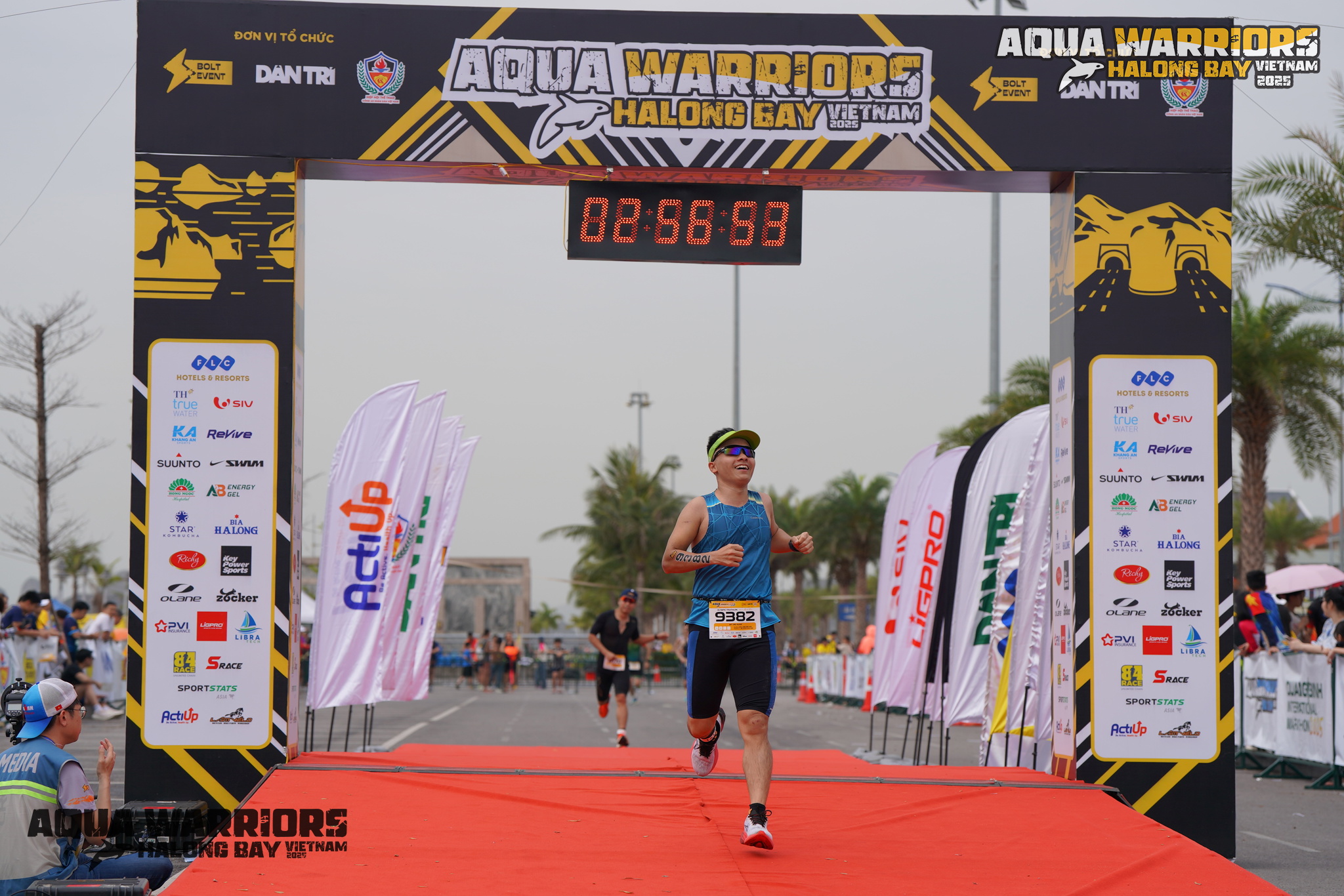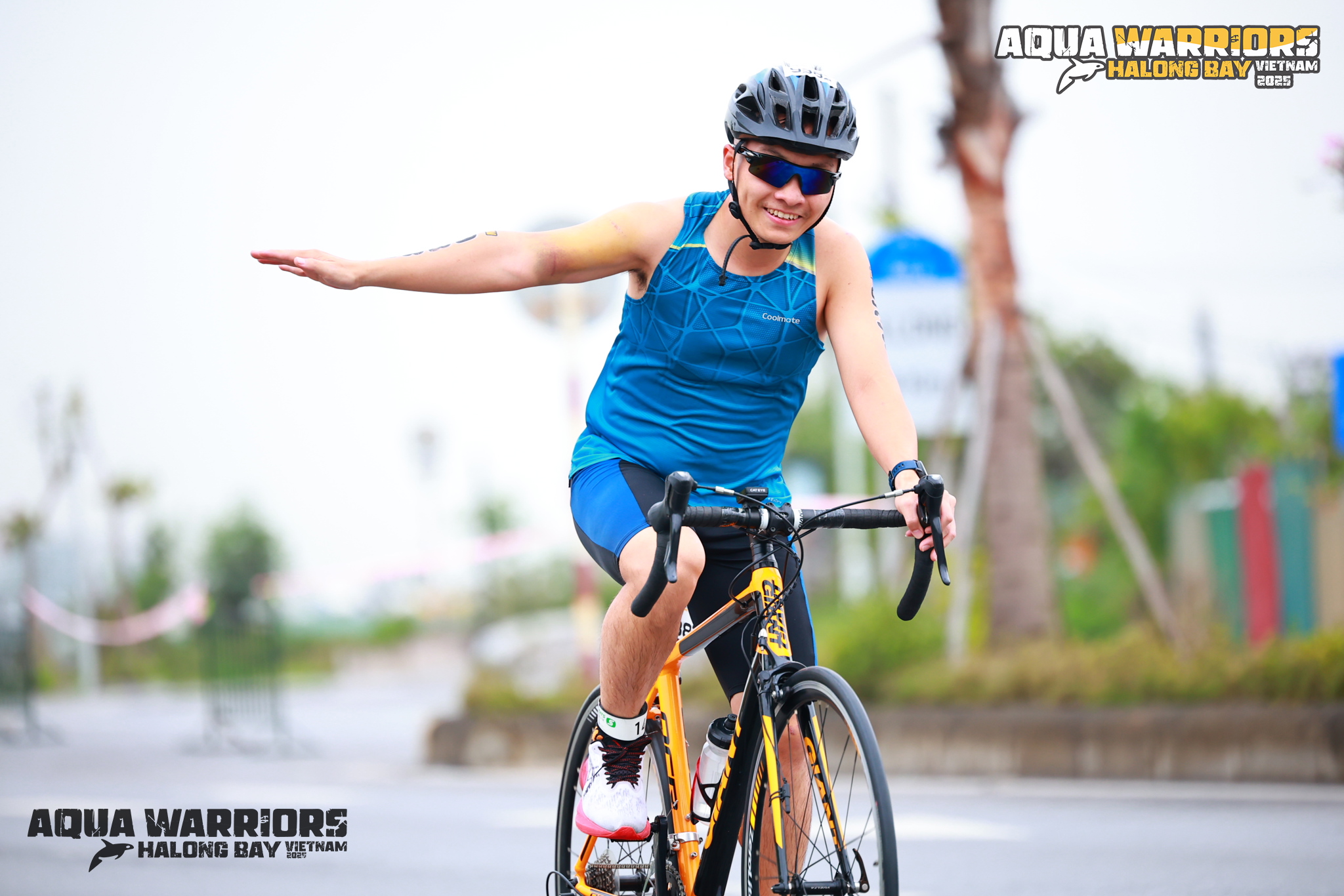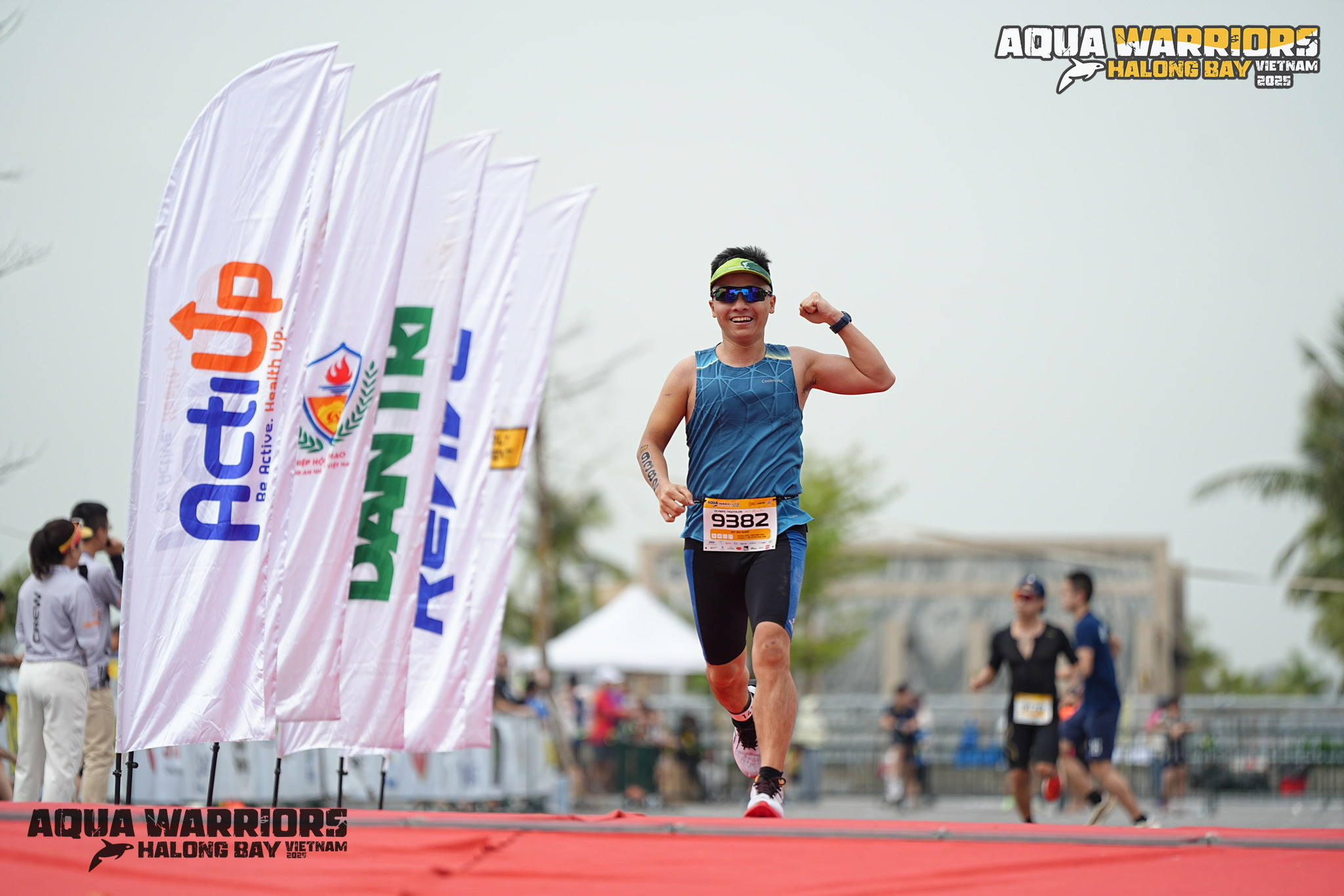My first Triathlon

I had always hesitated to join a triathlon—until I started using a bike for daily commuting in Australia. That simple routine slowly built my confidence on two wheels. Then, during Easter 2025, I returned to my home country and completed my very first triathlon (Olympic distance: 1.5km ![]() , 40km
, 40km ![]() and 10km
and 10km ![]() ) at the Aqua Warriors Series, held in Ha Long, Quang Ninh. It was a memorable and eye-opening experience that left me not only with great stories but also many valuable reflections.
) at the Aqua Warriors Series, held in Ha Long, Quang Ninh. It was a memorable and eye-opening experience that left me not only with great stories but also many valuable reflections.
1. Triathlon is a Challenging but Rewarding Sport
Triathlon is both physically demanding and deeply fulfilling. The challenge lies in the discipline and structured training it requires—balancing swimming, cycling, and running isn’t something you can do on a whim. It takes consistent effort and careful planning.
But the rewards are worth it. Competing in a triathlon feels like the culmination of a long, disciplined journey, and the race-day atmosphere often brings out the best in us. Surrounded by other athletes with high spirits, we are naturally pushed forward—mentally and physically. The support on race day, from volunteers and spectators, makes the experience much more enjoyable and energizing compared to solo training.
To perform well, two key things matter: a strong, positive mindset and a well-thought-out race strategy. Staying relaxed but focused helps maintain motivation, especially when the going gets tough. A good strategy should break the race down lap by lap, including transitions—because in endurance sports, consistency is crucial. Finding and maintaining a steady pace is often the key to a personal best. However, since triathlon involves switching between disciplines, it’s common to struggle with pacing early in each segment. That’s why it’s important to listen to your body closely in the first 10 minutes of each leg—roughly the first 300m swim, 5km bike, and 2km run—to avoid false start and allow your breathing to stabilize and your body to adjust to the new rhythm.
Given how demanding triathlon training is, and how limited our time, energy, and youth can be, I truly value every opportunity I get to participate in this sport.
Competing is the result of training, expressed in a boosted spirit. Pace achievements:
2:40 /100m
30.8 km/h
4:51 /km
2. Cycling is an Expensive and Dangerous Sport
Among the three disciplines in triathlon, cycling arguably has the most significant impact on overall performance. The ride segment is long and intense, and a strong bike leg can make a huge difference in the final results. That’s why, if you’re serious about improving, investing in a good bike isn’t just optional — it’s essential.
In my own experience, the gap between using a basic bike and a high-performance one is massive. A better bike doesn’t just make the ride smoother; it also opens the door to more advanced techniques like drafting, which professional triathletes use for over 80% of the course to conserve energy and maintain high speeds. A quality road bike typically costs around $2,000–$4,000 USD — a big investment, but one that makes a noticeable difference in performance and comfort during training and racing. During my first Olympic-distance triathlon, I rode a cheap rental bike and still managed an average speed of 30.8 km/h over the 40 km course. With a high-quality bike set up properly for aerodynamics and wind protection, maintaining an average speed of 35 km/h becomes much more achievable and sustainable — even comfortable with good form and training.

But cycling isn’t just costly — it’s also the most dangerous part of triathlon. Training often requires long-distance rides at high speeds, sometimes on open roads or in unpredictable weather. The margin for error is small. From what I’ve experienced and seen, mastering bike handling skills is absolutely vital: keeping a firm grip on the handlebars, knowing when and how to brake, and avoiding unnecessary hand movements can significantly affect both safety and performance. I’ve witnessed how unforgiving the sport can be — one wrong move at high speed can easily lead to a crash — but I’ve also seen how rewarding it is when someone gains full control and confidence on the bike.
3. To Follow a Sport Long-Term, Progress is the Key
At first, I believed that passion was the most important factor in staying committed to a sport. But over time, I’ve come to realize that simply liking something isn’t enough. If we want to stick with a sport for the long haul, the most crucial element is progress. Without progress, it’s easy to lose motivation — even the strongest passion can fade when things start to feel stagnant.
Progress doesn’t have to happen quickly. It’s not about a few days or weeks, especially in sports that are technically demanding like swimming. Sometimes, it takes months or even years to truly feel improvement. Though I’m still relatively new to swimming and cycling, I’ve been running for over four years, and I’ve started to notice some shared patterns across all three disciplines. Each sport may engage different muscle groups and require different techniques, but they all demand endurance, resilience, and mental strength — qualities that triathlon trains better than almost anything else.

One insight I’ve found especially valuable is the role of relaxation in training. To build endurance and improve technique, being able to sense and control how your body moves — especially when relaxed — is critical. The more I train, the more I notice how important the hip flexor muscles are. Learning to release tension in that area has improved my overall performance by more than 10% across all three sports. That kind of subtle, gradual improvement is what keeps me going.
Looking back, completing my first triathlon was more than just crossing a finish line — it marked the beginning of a deeper journey. A journey of discipline, discovery, and self-improvement. Through the swim, the ride, and the run, I learned not just about endurance, but about myself. Triathlon isn’t just about being physically fit; it’s about building patience, mental strength, and the ability to adapt. The sport is demanding, yes, but that’s what makes the rewards so deeply personal.
Whether you’re just starting out or already deep into your triathlon journey, I believe progress — no matter how small — is the true motivator. Keep moving forward, stay curious, and embrace the challenges along the way. Because in the end, it’s not just about becoming a better athlete — it’s about becoming a better version of yourself.

If you’re considering trying triathlon for the first time — just go for it. You don’t need the best gear or years of experience to get started. A rented bike, a steady mindset, and a willingness to learn can take you further than you think. Start where you are, train consistently, and you’ll surprise yourself. And if you ever feel stuck, just remember: progress is still progress, no matter how slow it feels.
I wrote this based on my own experience and ideas — with a little help from ChatGPT along the way.
Enjoy Reading This Article?
Here are some more articles you might like to read next: